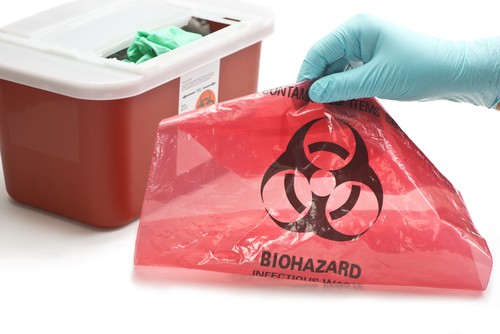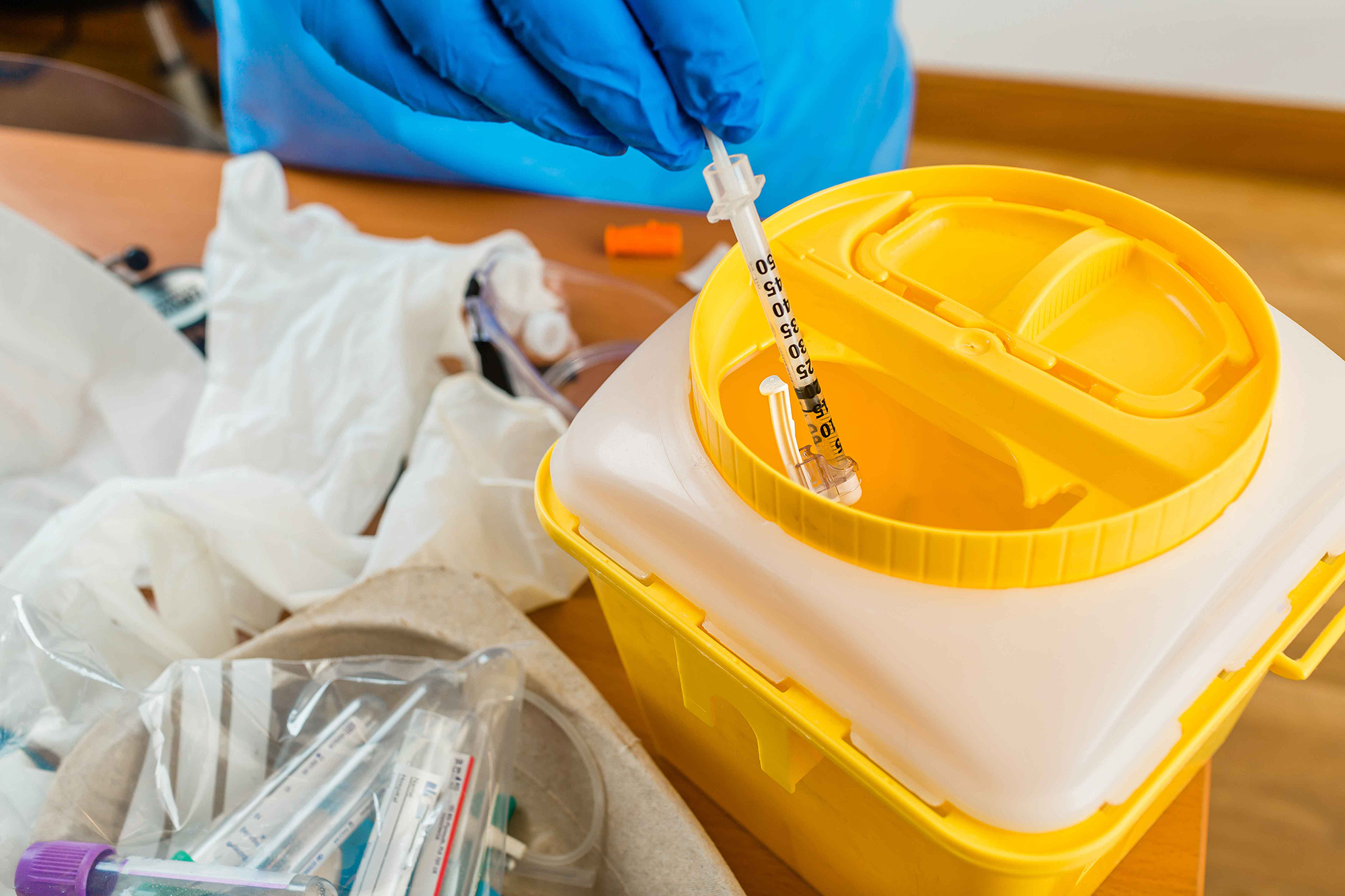The Value of Effectively Managing Clinical Waste
Correct monitoring of clinical waste is of utmost value in health care centers. The handling, storage space, and disposal of medical waste call for strict adherence to standards and regulations to make sure the security of people, healthcare workers, and the environment. Inappropriate administration of medical waste can posture significant health and wellness risks, consisting of the transmission of transmittable illness and injuries from sharp objects. Improperly disposed of clinical waste can have harmful results on the setting, infecting water sources and dirt. Healthcare facilities have regulatory and lawful responsibilities to appropriately manage medical waste, and failure to conform can lead to fines and legal effects. By executing ideal practices for secure handling and disposal of medical waste, health care professionals can minimize these risks and add to a safer and much healthier atmosphere for all. Appropriate education and learning and training on waste administration are essential for health care specialists to meet their duties in this field.
Health And Wellness Risks Related To Improper Waste Management
Inappropriate management of clinical waste postures considerable wellness dangers to both healthcare employees and the public - WasteX Medical Waste Disposal. Clinical waste, that includes sharps, contagious products, drugs, and contaminated compounds, calls for appropriate handling and disposal to avoid the spread of infections, injuries, and direct exposure to harmful compounds
One of the primary health and wellness threats associated with improper medical waste management is the transmission of infectious conditions. Medical care employees who come into contact with infected waste might get conditions such as HIV, liver disease, or other bloodborne microorganisms. Similarly, if medical waste is not properly thrown away, it can pollute the environment, water resources, and also food, leading to the spread of diseases within the neighborhood.
Inappropriate waste monitoring can likewise cause injuries, especially from sharps such as needles, scalpels, and damaged glass. Accidental needle punctures can result in the transmission of bloodborne conditions, while cuts from sharp items can create serious injuries and infections.
In addition, the improper disposal of pharmaceutical waste can bring about the contamination of water materials. When run out or unused medications are purged down the toilet or disposed of inappropriately, the chemicals can seep into water sources, influencing marine life and possibly entering the human food chain.
Environmental Influence of Improperly Disposed Medical Waste
One of the substantial effects of inadequate administration of clinical waste is its damaging effect on the atmosphere. Incorrectly disposed clinical waste positions a severe threat to ecological communities, water bodies, and the overall equilibrium of the setting. WasteX Medical Waste Disposal. The harmful products had in clinical waste, such as infectious agents, pharmaceuticals, and chemicals, can pollute dirt, water, and air, bring about prevalent pollution and deterioration
When medical waste is not correctly segregated, treated, and disposed of, it can locate its method into water bodies through inappropriate land fill practices or illegal unloading. This can lead to the contamination of groundwater and surface area water, impacting marine life and possibly contaminating alcohol consumption water sources. The release of harmful chemicals and pharmaceuticals into the atmosphere can interfere with environments and damage both pet and plant varieties.
Furthermore, improper incineration of medical waste can launch poisonous contaminants, including furans and dioxins, right into the ambience. These pollutants have actually been connected to different health issues, including respiratory system troubles, reproductive conditions, and even cancer. The launch of greenhouse gases during incineration also adds to environment modification.
To reduce the environmental impact of improperly disposed clinical waste, it is important to execute proper waste management practices. This includes partition of waste at the resource, appropriate treatment approaches, and safe disposal strategies. By doing so, we can lessen the contamination and shield the setting from the dangerous effects of medical waste mismanagement.
Governing and lawful Responsibilities for Medical Care Facilities
In order to attend to the environmental influence of improperly disposed clinical waste, health care centers are needed to stick to governing and legal obligations. These commitments are implemented to ensure the appropriate handling, storage space, transportation, and disposal of clinical waste in a eco responsible and secure fashion.
One of the essential legal responsibilities for healthcare centers is to obtain the necessary authorizations and licenses for dealing with clinical waste. This consists of obtaining a waste generator identification number and adhering to federal, state, and regional laws. Health care centers should additionally keep detailed documents of the types and amounts of medical waste created, along with the approaches used for its disposal.
Moreover, health care centers should execute proper partition and packaging treatments for different sorts of medical waste, such as sharps, transmittable waste, and pharmaceutical waste - medical waste removal. This consists of using watertight containers, biohazard bags, and sharps containers that satisfy governing requirements
Healthcare centers are likewise liable for making sure that their personnel obtain suitable training on the appropriate handling and disposal of medical waste. This consists of training on infection control, individual safety devices, and waste administration methods.
Best Practices for Safe Handling and Disposal of Medical Waste
To guarantee the secure handling and disposal of medical waste, medical care facilities need to apply finest practices. These techniques are necessary to shield the health and wellness of both health care workers and the general public. The correct monitoring of medical waste is important in stopping the spread of infectious diseases and reducing environmental contamination.
Among the very best methods for risk-free handling and disposal of medical waste is segregation. Health care centers need to divide various kinds of clinical waste, such as sharps, transmittable materials, and pharmaceutical waste, to stop cross-contamination. Appropriate labeling and color coding of waste containers also play an essential function in making sure the correct partition of medical waste.
An additional crucial best technique is the use of suitable containers for saving and moving medical waste. These containers ought to be watertight, puncture-resistant, and appropriately sealed to avoid any feasible release of dangerous materials. Additionally, healthcare facilities need to establish clear procedures for the collection, storage space, and transportation of medical waste to minimize the threat of direct exposure and contamination.
Furthermore, medical care centers must educate their team on the appropriate handling and disposal of medical waste. Regular training sessions and correspondence course need to be performed to keep medical care workers updated on the newest standards and laws. This will certainly help guarantee that every person involved in the process recognizes the prospective risks and is geared up with the required understanding and skills to deal with medical waste securely.
Education and Training for Healthcare Professionals in Waste Management
Healthcare specialists need thorough education and training in waste management to make sure the proper handling and disposal of clinical waste. The monitoring of medical waste is a critical component of medical care operations as it directly influences the wellness and security of both medical care employees and the general public. Correct education and learning and training furnish medical care professionals with the necessary knowledge and skills to deal with and dispose of medical waste in a ecologically responsible and safe way.
Education and training programs for health care experts in waste monitoring cover a series of subjects, consisting of the category and partition of clinical waste, appropriate packaging and transport, storage and labeling requirements, and the usage of individual protective equipment. These programs additionally highlight the significance of adherence to local, nationwide, and worldwide policies and standards regulating medical waste monitoring.
By getting comprehensive education and learning and training in waste administration, healthcare specialists can properly lessen the risks connected with medical waste, such as the transmission of contagious illness and the prospective damage to the setting. WasteX Medical Waste Disposal. Trained experts can identify and apply best techniques that promote sustainability and reliable waste monitoring techniques within health care centers.
Continual education and learning and training in waste administration ought to be an ongoing top priority for medical care experts, as waste administration methods and regulations might develop over time. By staying current with the latest developments in waste administration, healthcare professionals can make certain that they are outfitted with the expertise and abilities needed to make educated choices and add to the total renovation of waste monitoring techniques in medical care setups.

Final Thought
Finally, appropriate administration of clinical waste is essential to reduce health and wellness dangers and reduce the environmental impact. Healthcare centers have governing and lawful responsibilities to guarantee safe handling and disposal of clinical waste. Adhering to ideal methods and offering education and training for healthcare experts in waste administration are important for keeping a healthy and secure atmosphere. By adhering to these standards, medical care facilities can shield public wellness and protect the honesty of our ecological communities.

Medical care experts call for extensive education and learning and training in waste monitoring to make certain the appropriate handling and disposal of clinical waste - medical waste disposal service. The monitoring of medical waste is a crucial element of health care procedures as it directly affects the health and wellness and safety of both health care workers and the basic public